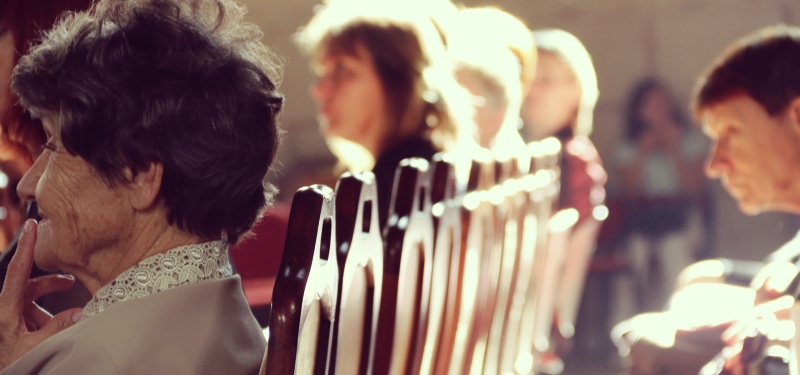Of the 325.7 million or more people in the United States, roughly 68% believe in a God, a higher power, or diety and/or belong to some organized religion. There are multitudes of studies which observe how active participation in religion affects the general populous, but what about when it comes solely to the elderly? Does illness have any effect on religious observance in the elderly, and does religious observance, in turn, impact their health? At UEW Healthcare, we help many EEOICPA and RECA beneficiaries with occupational illnesses by providing home healthcare services, and, as a resource, want to provide the others with different ways they can experience health and healing when it comes to themselves or other elderly relatives. This article explores the potential health benefits of religious observance and its overall effect on the elderly.
Does Religion Have an Impact?
The biggest question about religious observance in the elderly is if it matters or not, or if the impact is real. The second biggest question is whether or not religion and faith are the same thing. According to a study published in the National Center for Biotechnology Information, organized religion did, in fact, have an impact on the elderly population. The extent of the study showed that mental health improved because of the effect of community, a sense of belonging, and an establishment of community among those with shared beliefs. This insinuates that actually having faith, in addition to being involved in the relgious community, specifically helps to establish higher rates of mental health. Further effects of health and healing, such as disease and other non-mental illnesses, were not observed in this particular study, and it is also important to note that the study was conducted only on elderly participants of Christian faith. The overarching idea, however, can likely be applied to other non-Christian religions, suggesting that organized religion and faith can help promote better mental health (and potentially other positive health effects) in any elderly person who is actively involved in a given denomination.
How Illness and Religion Relate
In another article performed by the same researcher responsible for the study referenced above, it postulated that a cancer diagnosis indeed increased religious observance. The need for reason and purpose in life often inspires people to turn to organized religion for help and healing, especially when faced with a cancer diagnosis. While this study only indicated cancer as a motivating factor, we can extrapolate that any terminal illness may have the same effect. In comparison, there are also many studies which indicate that increased religious observance in organized faith is also health-promoting, beyond just mental health, and can help in the fight against illness. If nothing else, organized religion helps to improve quality of life when faced with severe diseases.

Choosing a Faith/Religion for Health
There are multitudes of faiths and religions that offer different communities of believers. For the purpose of health and well-being from a scientific and medical perspective, there isn’t a particular religion or faith-based group that provides more benefits for the elderly than any other group. While there isn’t a “right” faith or religion when it comes to health, there are different faiths any elderly person can join that may be better suited for their beliefs which they can then share with others in the religious community.
Getting Help and Healing
Doctors, in-home healthcare professionals, and many others know that there may be different ways to augment traditional medicine, from religious observance to getting out and connecting with nature. Whatever it is, be sure that your loved ones are receiving proper treatment and if they are suffering from an occupational disease after working with the DOE in the United States, they may qualify for free home healthcare provided by our experienced staff at UEW Healthcare and Four Corners Health Care. Call us today for a free consultation about the benefits we provide under DOL EEOICPA and RECA.